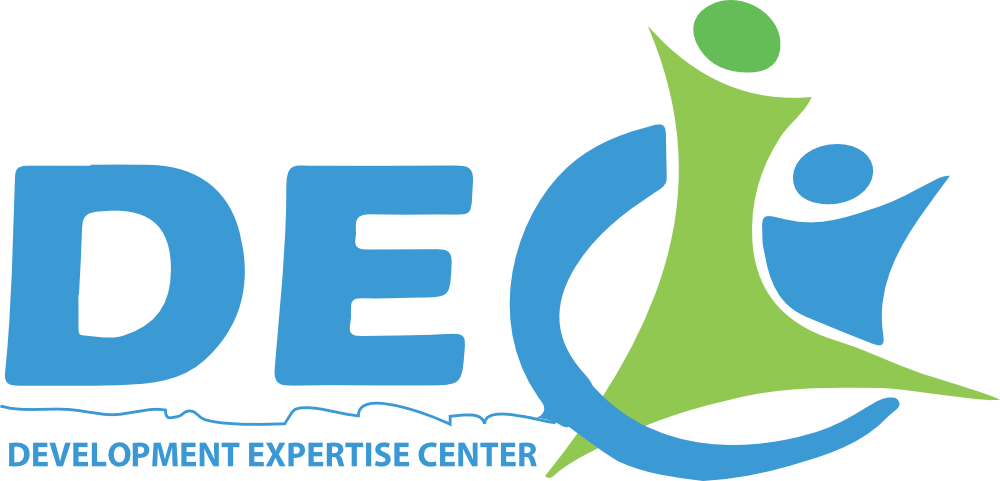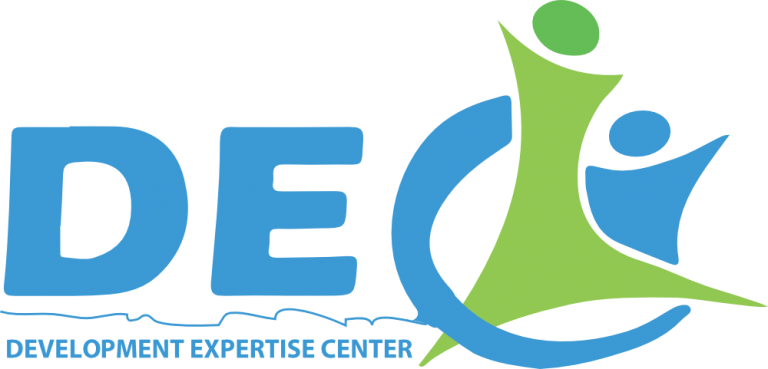Tools
- Social accountability: The goal of the social accountability training is to strengthen capacities of citizen groups and government bodies to work together in order to enhance quality of public services delivered to citizens. It seeks to give voice to the needs and concerns of all citizens on the delivery and quality of public services. It is more focus on increasing the capacity of citizens, CSOs, policy-makers and service providers to respond to community and citizens’ needs and preferences. Emphasis on the inclusion of disadvantaged groups like women, children, and people with disabilities, youth groups and the elderly were given in a more active form.
- Life skills for lobby: The goal of this training is to equip the Participants to develop a feeling of self-worth and confidence as well as interpersonal knowledge and skills in order to be more successful in their lobby and advocacy practices. ‘Life skills for lobbying’ was developed with the notion that specific skills are needed to be an effective lobbyist. The life skills for lobbying training is designed as a hands-on, practical training focusing on an in-depth and reflective understanding of the life skills that are crucial for lobbying.
- Local Fund Raising (LFR): The goal of this LFR approach is to capacitate the target groups on local fund raising tactics and techniques to enable them to seeking and gathering voluntary financial contributions by engaging individuals, businesses, charitable foundations, or governmental agencies. Mostly DECs Fund raising approach is focused on the identification and solicitation of local recourses from their community.LFR is a significant way that Youth groups, WSHGs, Farmer groups and CSOs may obtain the money for their operations.
- 7-steps approach: 7-steps approach which is a unique, innovative and tested approach used to provide market relevant TVET skills training and reduce the mismatch between training provider (labour supply) and labour market (world of work). The principle of this approach is “Linking Skills to the labour market” and it is a journey from skills training to labour market with a holistic and full package. The rationality behind the introduction of this approach is, providing education and skill training for youth and women is not enough b/c: (1) youth unemployment even among trained youth is very high in many countries including Ethiopia and (2) At the same time business often have a difficult time finding skilled staff who fulfills their requirement in the work place. Therefore; in this innovative approach the above issues are solved by connecting companies, SME’s, TVETS and government officials to jointly define the type of skills and competency needed for vacant jobs, building a long-lasting network to keep refining training to labour market changes in the long run.
- Work based learning (on-Job training) approach: On-job skill training/ Work based learning/ is an approach that simulates the workplace so that women and youth gain real-world, hands-on skills. Learning by doing and using are the principal drivers of incremental innovation. In almost all fields of production of goods and services, the repetition of production tasks leads to a gradual improvement in the efficiency of production processes and product/service design and performance. The importance of such ‘learning by doing’ processes has long been recognized, as has the central place of direct production workers in innovation as sources of work-based learning.
- Interlinked Vale-chain business model: DEC has ample experience on promoting establishment of mutually interdependent coops by interlinking different workable value chains and one member of cooperatives will provide input to the other cooperatives, based on competitive prices and an interlinked business model. This new business model creates a competitive (win-win) advantage for cooperatives established from different values chains b/c the supply and the demand is interlinked together.
- Apprenticeship and Cooperative training: to improve the employability skills of women and youth DEC has provided apprenticeship training with frequent support and follow up in close collaboration with the world of work by making different consent of mutual advantages of training provider and companies/ SMEs. Apprenticeships are a proven way to build bridges between the worlds of education, training and work. Apprenticeship can accommodate a wide range of abilities and aptitudes because it reflects the equally wide range of skills required in a modern economy. As was indicated earlier, the best way to acquire core employability skills is on the job. Given that apprenticeship systems combine in-class and workplace training it is ideal for transmitting these skills.
- Value chain development: DEC has experience of workable value chain development by interlinking highly productive value chains (field of work) which will help to increase the livelihood diversification and resilience building of vulnerable communities, youth groups and women’s.
- Pedagogical and didactical skills training (ATLM): The Goal of the active teaching learning methodology is to build the capacity of Teachers/ Trainers to make their teaching/training sessions more active and fun, for more effective learning in general education and skills education and as a result the trainer can practice this methodology in their TVET class room and they assures quality of market relevant vocational skills training.
- Business development support (BDS): The goal of this business development service is to improve entrepreneurial competencies and business development skills of trainees, out of school youths, Existing SMEs, cooperatives and private business firms. And also as part of this BDS support DEC has been tried to link the business firms with market outlets and linking micro finance institutions.
- Life skills training: The goal of this life skills training is to equip students with a feeling of self-worth and confidence as well as interpersonal knowledge and skills in order to function more professionally in their future job environment. The lessons seek to promote the life skills of the students, these are skills that are required to deal with the demands and challenges of everyday life. The skills include both social skills and emotional skills. These life skills are essential for employability of the students, it is crucial that the students optimize these skills during their vocational training. And it has a preventive goals and aim to enhance the resilience of the students in everyday situations at school, work, and in private life.
- Vision development training: The Goal of this vision development training is to elicit the motivation of students on the development process of their future visions, goals and plans and increase their commitments on the journey of success. It is a part of pre-training before providing the pure employability skill training in the TVET class room that helps to identify the motivation of trainees for skill training and assess their readiness of self development and at the end it helps to select the right trainees.
- Decent work Approach: This is a new approach that helps to increase the awareness on Decent Work and sector specific OHS, selected Company/SME managers were trained on labour law, OHS and gender-related work issues. In addition, attention are paid to aspects of respect for fundamental labour rights and to right of association and collective bargaining, social protection, pensions, health care in income protection and preservation of health, social dialogue as instruments for regulating the specific interests of the main actors in the world of work and to the research of the possible convergences.
- Coaching skills: The goal of this coaching skills training is to improve the performance of TVET trainers through frequent coaching and follow up for the purpose of providing market relevant skills training in line with the curriculum framework and job profiles. DEC has been providing frequent coaching and follow up for TVET trainers in the workplace setting through on-the-job training, work experience, internships, and work-study programmes.
- Portfolio Development: It is a new approach of market relevant skills training provision through promotion of project based training approaches in the TVET class rooms. DEC has been practice this new training approach and created a unique project based skills training approach which will be disseminated and replicated to government institutions to ensure the practical skills ability of graduates.
- Labour market assessment tool: The goal of this tool is to define and analyze the labour market and to identify the vale chains that have higher demand and skills and qualifications needed by the labour market and local business firms. And also this helps to understand the real needs of the world of work, the capacity of the TVET provision and the interests of the potential candidates.
- Curriculum frame work and job profile development: The goal of this training and tool is to develop the curriculum frame work and job profiles in close collaboration with the labour market that comprehensively addresses the needs of the labour market in the area of needed skills which is called professional skills, life skills and business skills. Developing Curriculum frame work that evolve through continuous dialogue with employers to align the training programme with business needs and local realities as well as keep teachers up-to-date about workplace practices.
Life Skills
Goal: To equip students with a feeling of self-worth and confidence as well as interpersonal knowledge and skills in order to function more professionally in their future job environment.
7 – Steps approach
Goal: To reduce the mismatch between the labor market demand and the training providers demand through the provision of market-relevant skills training.
Active Teaching strategies and learning methodologies (ATLM)
Goal: Building the capacity of Teachers/ Trainers to make their teaching/training sessions more active and fun, for more effective learning in general education and skills education
Vision Development
Goal: To elicit the motivation of students on the development process of their future visions, goals, and plans and increase their commitments on the journey of success.
Coaching
Goal: To improve the performance of TVET trainers for the purpose of providing market-relevant skills training in line with the curriculum framework and job profiles.
Labour Market Assessment
Goal: To identify potential value chains that have a higher demand in the labor market and to explore business opportunities/job opportunities in the local environment.
Business Development Support
Goal: To improve entrepreneurial competencies and business development skills of Trainees/ Existing SMEs
NB: Please note that all the innovative publications and methodologies mentioned above have been piloted, tested and achieved remarkable results and the multi component approach/ public-private partnerships have also been promoted thorough these methodologies and innovations.

